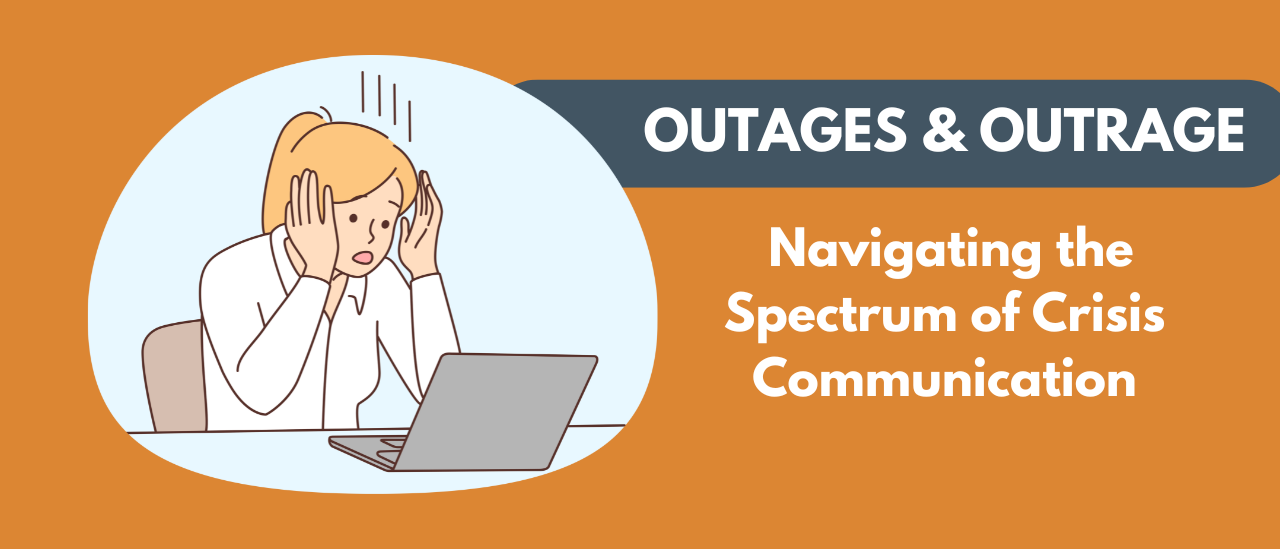
Spectrum’s massive internet/phone/cable outage in Texas during hurricane Beryl caused a multitude of problems for businesses and individuals across the state. For more than five hours, work for many came to a halt while calls to the Spectrum contact center to report issues were met with an outbound message proclaiming call volume had hit its peak, pushing people to their website. The website, once you could finally access it, had minimal information other than acknowledging “an issue in your area.”
X, the social media site/collective town square of crankiness, was on fire with speculation, frustration, and allegations. Hours later, there was finally a post from @Ask_Spectrum with little information and no clarity of when service would come back online.
While this may seem like a niche crisis that would never happen to your business, all organizations are vulnerable to crises of their own. What matters most is how you respond — and often, the best response is rooted in prepared anticipation knowing that it can happen to you. As an organization who has helped clients navigate crisis communications in the past, this is an opportunity to reflect on how your business can prepare for emergencies.
- Plan now. In times of crisis, over-communication is key. Scenario plan and determine how and what could be said. It is much easier to adapt messaging in a crisis than to start from scratch.
- Speak with a unified voice that is reflective of your brand. Spectrum is all about helping businesses, but their recent communication about the statewide outage was off-brand in that they blamed a third party instead of projecting their customer-centric voice to reassure businesses and customers that they were working diligently to get services back online.
- Look at all your communication channels and leverage them with timely updates — even if you don't have new information to share. Over-communicating reassures customers and others that you are listening, working on the problem, and recognize the immediacy of coming to a solution. And, don’t forget that post-crisis communications are a must to salvage relationships, explain, apologize and prevent customers from switching to a competitor. Internal audiences are critical.
- Your people are the front lines and if you don’t give them information and a common message to communicate, you are missing an important audience. Plus, there is nothing worse than someone sharing incorrect information and attributing it to someone on your team. The old “my brother’s best friend’s cousin works with someone who said …” is not the communication you need.
- Call for backup! Many times in a crisis, your focus is needed on fixing the problem and recovery. Teams like GDC Marketing & Ideation have years of experience in navigating issues successfully.
There are varying levels of crisis navigated daily with every business. Simple steps, now, can prevent a larger issue down the road.
